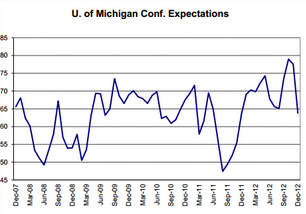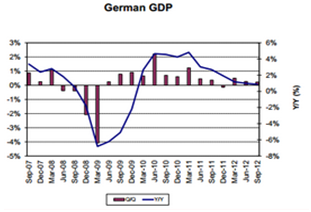>
> (email exchange)
>
> Hi Warren, I’m a bit confused over one point. MEMMT says that only govt deficits (or an
> external sector like foreign) can inject NFAs into nongovt. So if govt runs a balanced
> budget over the years the NFAs left to nongovt will net to 0.
>
Yes.
>
> Now take Keynes’ consumption function and the multiplier. Govt invests 100$ into Mr A in
> nongovt. Mr A will spend on average 75% of that, and will save the rest.
>
Yes.
>
> The next guy will spend 75% of the $ he got from A and save, and so on along an ever
> dwindling series of consumption expenditures that will add to say 300$, ie the multiplier
> effect.
>
Ok. This presumes there is unemployment/unmet savings desires. And the additional 100$ of nfa will have resulted in higher levels of employment that produced the 300$ of incremental output.
>
> So, say that govt runs a balance budget, ie spends 1 billion and will tax 1 billion, however
> the multiplier effect will have created in the aggregate a lot more $ out of the original
> govt injection of 1 billion.
>
If it all reduces savings desires unemployment will fall and output will rise. The presumption is that the 1 billion tax cuts spending by less than 1 billion, while the spending is the full 1 billion. That is, savings desires fell as those who were taxed spent from savings (or borrowed to spend, same thing).
And just as the initial govt spending is spent and respent as you describe, the tax also cuts spending which further cuts spending etc.
The presumption of the idea that an equal spending and tax will lower unemployment must be based on one of two things.
First, somehow those taxed simply reduce their savings and their savings desires. This is certainly possible.
The second is first illustrated at the extreme.
As govt employment grows the number of people left in the private sector falls, and we don’t measure unemployment as a % of the private sector work force. So if half the workforce in Italy is in the public sector, and unemployment is 10%, that means unemployment is some 20% of the available private sector labor.
So if, for example, govt employment was 90% of the labor force, it would be impossible for reported unemployment to be over 10%.
With 100% public employees there is 0 unemployment as defined.
I discussed this back in 2008 and I need to repeat it in a post thanks!
>
> And here is where I lose it. Will this mean that even in a balance budget regime in reality
> govt is never able to tax as many FAs as the multiplier will have created in nongovt before
> taxation is due? Is this disproving MEMMT and prove instead that a balance budget can
> still create NFAs for nongovt? Thx P.
>
Not at all.
ME MMT fully explains the workings of the condition described.
;)
Added link to Bill Mitchell’s dissertation on the subject here.




